Top Indian editor says New Delhi adopts a “Wait-and-Watch” approach on Dhaka situation
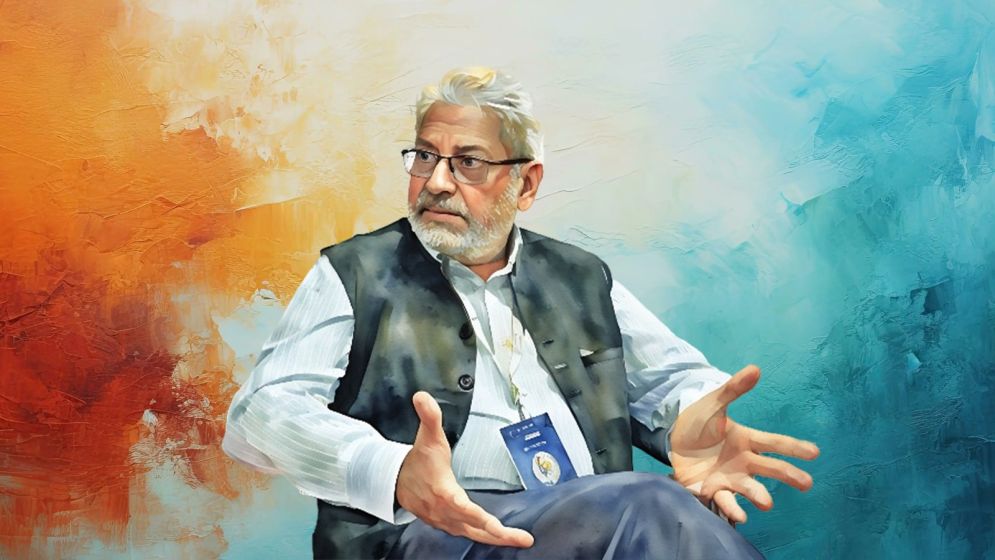
Siddharth Varadarajan
In her seminal 2016 article on the digital journalism revolution in India, published in Columbia Journalism Review, journalist Lakshmi Chowdhury described Siddharth Varadarajan as the quintessential "Delhi intellectual" with his salt-and-pepper beard, public schoolboy accent, Nehru jacket, and professorial glasses.
Nearly eight years later, Siddharth still embodies that intellectual persona, though his hair has transitioned from salt-and-pepper to mostly white.
Siddharth Varadarajan is one of the most respected names in Indian journalism.
In 2011, he was appointed as the editor of The Hindu through an extraordinary general meeting called by the Board of Directors, making him the first editor in the newspaper’s 150-year history who wasn’t from the family of its primary shareholders.
His tenure at The Hindu was short-lived, as in 2015, he was one of several high-profile editorial departures, attributed to Narendra Modi’s rise to power.
During this period, many legacy media outlets scrambled to align their top editors with the preferences of the new government.
In 2015, Siddharth co-founded The Wire, a digital platform alongside Siddharth Bhatia and MK Venu.
In less than a decade, it has become one of the most respected news outlets in India, known for its independent stance in an era dominated by "post-truth" politics under Modi’s leadership.
Recently, Siddharth visited Dhaka to participate in the Bay of Bengal Conversation, an annual flagship event hosted by the Centre for Governance Studies (CGS).
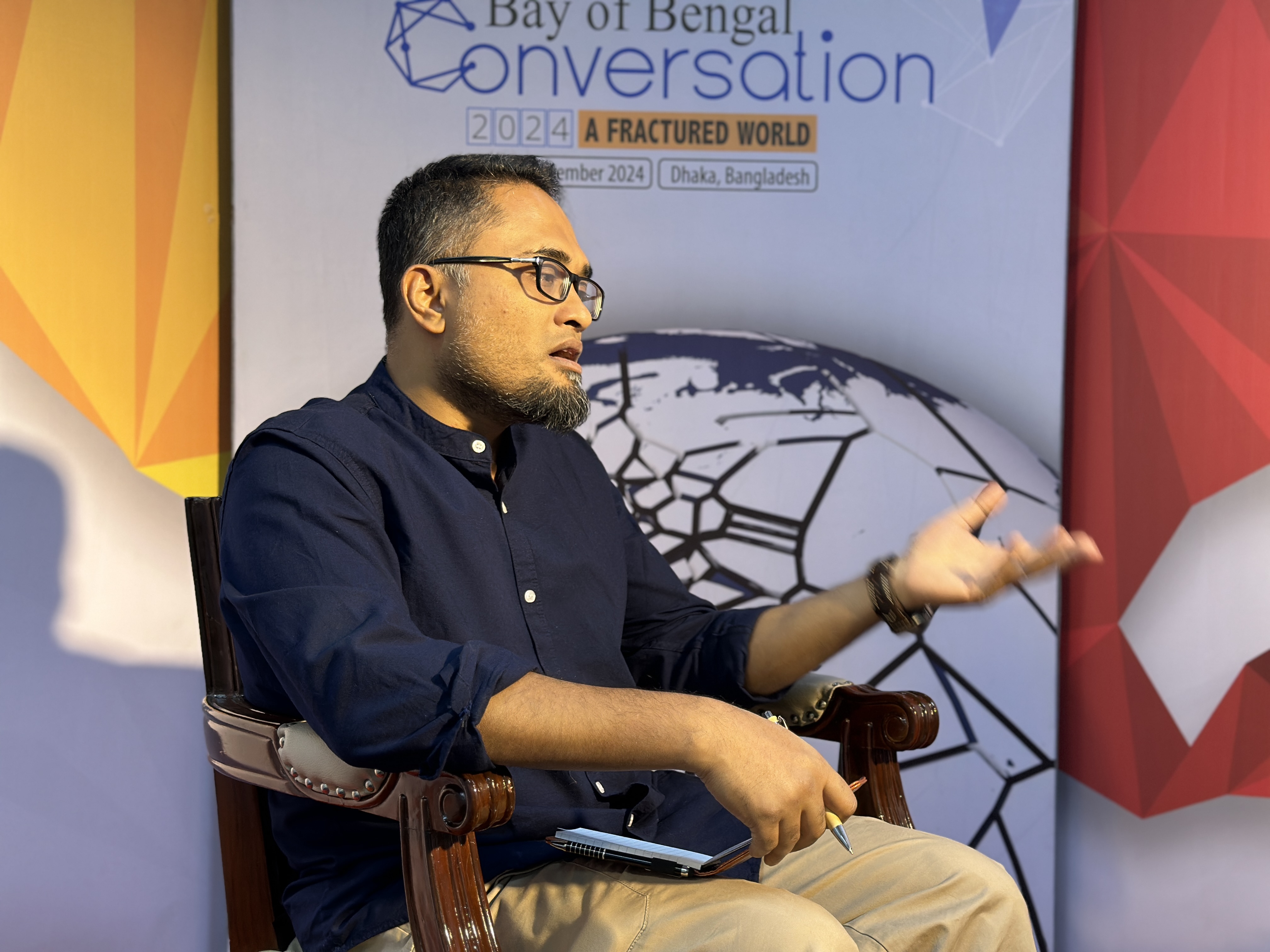
Faisal Mahmud, editor of Bangla Outlook (English), had the opportunity to interview him, discussing topics such as the Indian media’s coverage of Bangladesh’s July revolution, India-Bangladesh relations, and the implications of Modi’s recent election victory.
Here is an excerpt of that conversation for our readers.
Faisal Mahmud: This is your first visit to Dhaka since August 5th, but it seems you've mostly been confined to the conference room and haven't had much opportunity to explore the city. What’s your general impression of the situation here? Considering the revolutionary-scale uprising we've witnessed, as someone visiting from India, what kind of vibe are you picking up from Dhaka post-August 5th?
Siddharth Varadarajan: I've spoken to a diverse group of people at the conference, and during a social engagement yesterday, I met others who shared their perspectives. There’s a palpable sense of achievement and satisfaction over the end of Sheikh Hasina's dictatorship through mass protests. However, there's also a clear sense of uncertainty about the challenging and complex path that lies ahead.
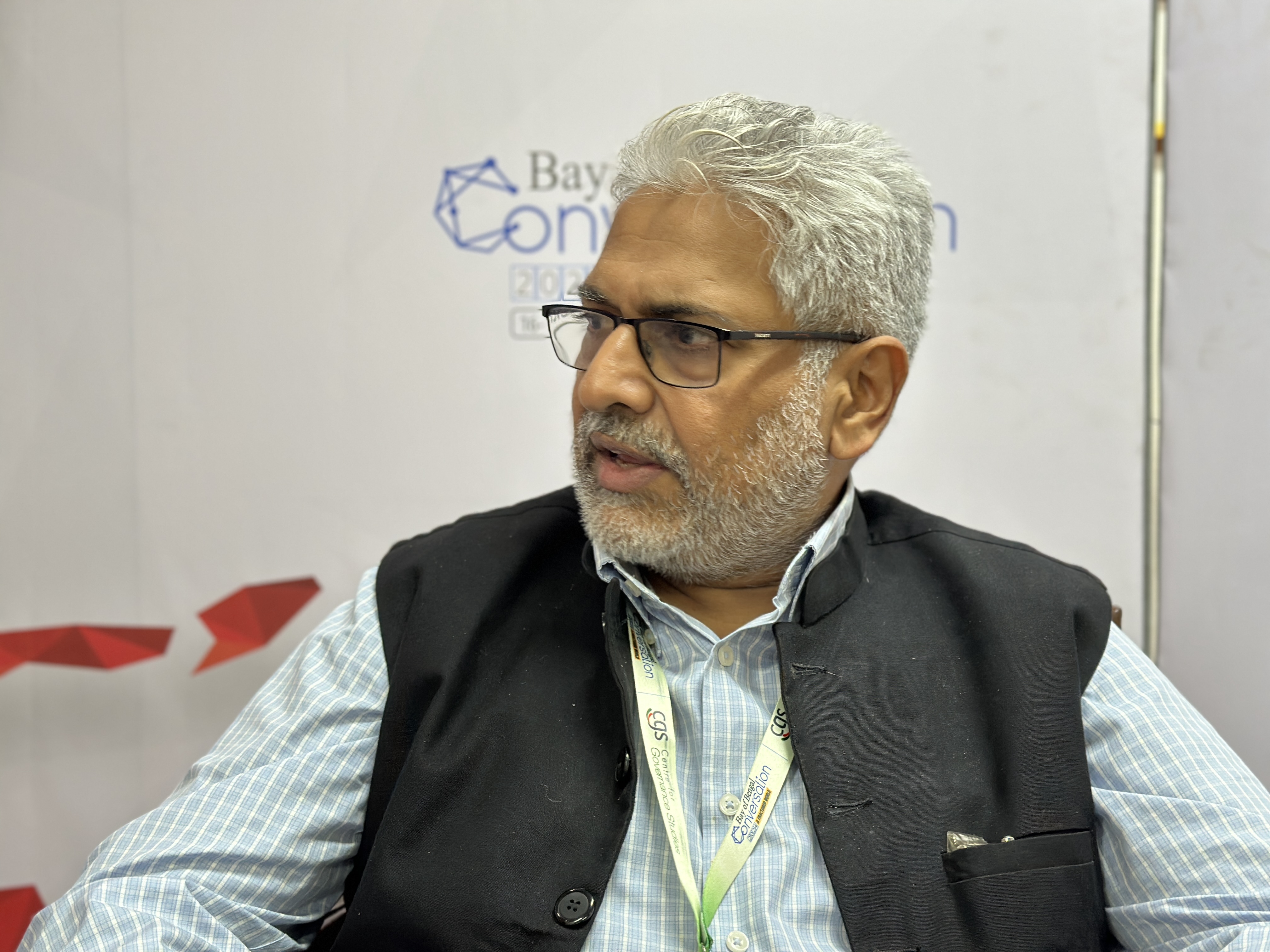
While people take pride in what they've accomplished, there’s no defined roadmap for achieving the broader goals they envisioned when overthrowing Hasina. The protests, which began with the anti-quota agitation, evolved into a larger movement against dictatorship. But this struggle was never just about one individual or one party.
It reflects a widespread desire for genuine democracy, accountable governance, and a system that prevents any one individual or group from dominating power. People want a democracy that goes beyond formal voting, which, as we know, can be manipulated, to include mechanisms ensuring press freedom, freedom of association, and protection from state harassment.
There’s awareness that time is limited. Most don’t expect the interim government to have more than a year and a half to bring about meaningful change, making this a very short window to address significant challenges.
This has created a mix of optimism and apprehension. A month ago, the sentiment might have been more unequivocally hopeful, but now, while optimism remains, it’s tempered with uncertainty and concern about the potential for things to go wrong.
FM: As a member of the Indian press, how would you assess the coverage Indian media has provided since August 5th? While a few outlets have tried to accurately portray the events on the ground, the majority seem to be distorting the narrative, focusing on claims of minority oppression that aren't actually occurring here. What’s your perspective on this, given your role in the Indian media?
SV: I believe the Indian media has historically not shown much interest in events in Bangladesh. This lack of attention forms the backdrop to the current situation. Major Indian media outlets, even under normal circumstances, have rarely followed developments in Bangladesh closely.
Besides, when it comes to foreign affairs, Indian media—like media in many other countries—tends to align with the narrative set by the government. Successive Indian governments, not just Prime Minister Modi’s, have maintained excellent relations with Sheikh Hasina and the Awami League government.
As a result, the Indian media has generally viewed Sheikh Hasina and the Awami League as not only friendly towards India but also beneficial for Bangladesh. This perspective, often adopted without much investigation or independent sources, reflects a somewhat complacent approach.
The assumption was: since the Indian government has good relations with Bangladesh, there’s no need to scrutinize what’s happening internally, and having Sheikh Hasina in power is considered a positive.
Her ouster, therefore, has disrupted this narrative, creating a significant challenge for this perspective. It’s a blow to the Indian government’s assurances that Sheikh Hasina was popular, good for Bangladesh, and a stabilizing force in India-Bangladesh relations. The Indian government is now left trying to explain how a government it supported so strongly could be overthrown by popular protests.
It’s also clear that this was not a coup orchestrated by the military or foreign powers but a movement primarily driven by the people. While the Army and the President played a role in the final outcome, the driving force behind Hasina’s removal was popular protest.
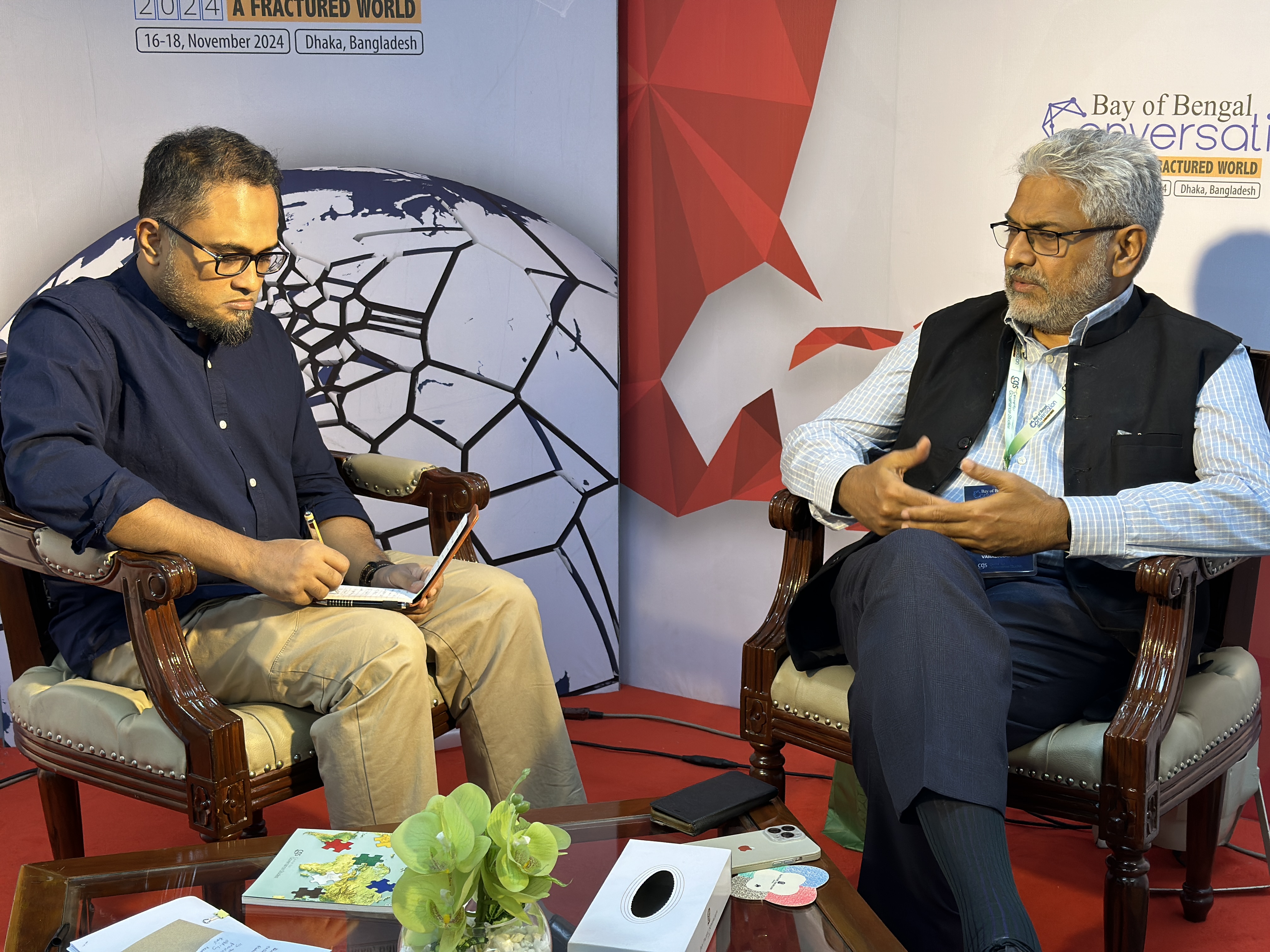
The ensuing chaos and violence were, in some ways, inevitable given that the police—a key instrument of her oppression—was no longer capable of enforcing order. Her removal unleashed various forces, some opportunistic, some communalist, and some Islamist, with individuals and groups perhaps using the opportunity to settle scores.
In this context, while incidents of violence did occur, they weren’t as widespread as some Indian media outlets and the Indian government have suggested. However, I’m also willing to acknowledge that the scope of these incidents may have been greater than what the Bangladeshi press has reported.
I would say that the real issue is not just the instances or scale of violence but the psychological impact it creates—the fear and sense of insecurity that spreads within communities.
For example, consider the situation of Muslims in India today. Over the past decade, perhaps 70 or 80 people have been killed in communal incidents—a number much smaller than the lives lost during the [2002] Gujarat riots in just three days. Yet, despite the lower death toll and extended timeframe, the average Muslim in India today feels a greater sense of insecurity and vulnerability than they did in 2002.
In the context of Bangladesh, it’s not surprising that the Hindu and Buddhist minorities may feel threatened or vulnerable following recent events. It’s crucial for the interim government to actively reassure these communities and ensure that divisive or communal elements do not undermine the incredible achievement of the Bangladeshi people.
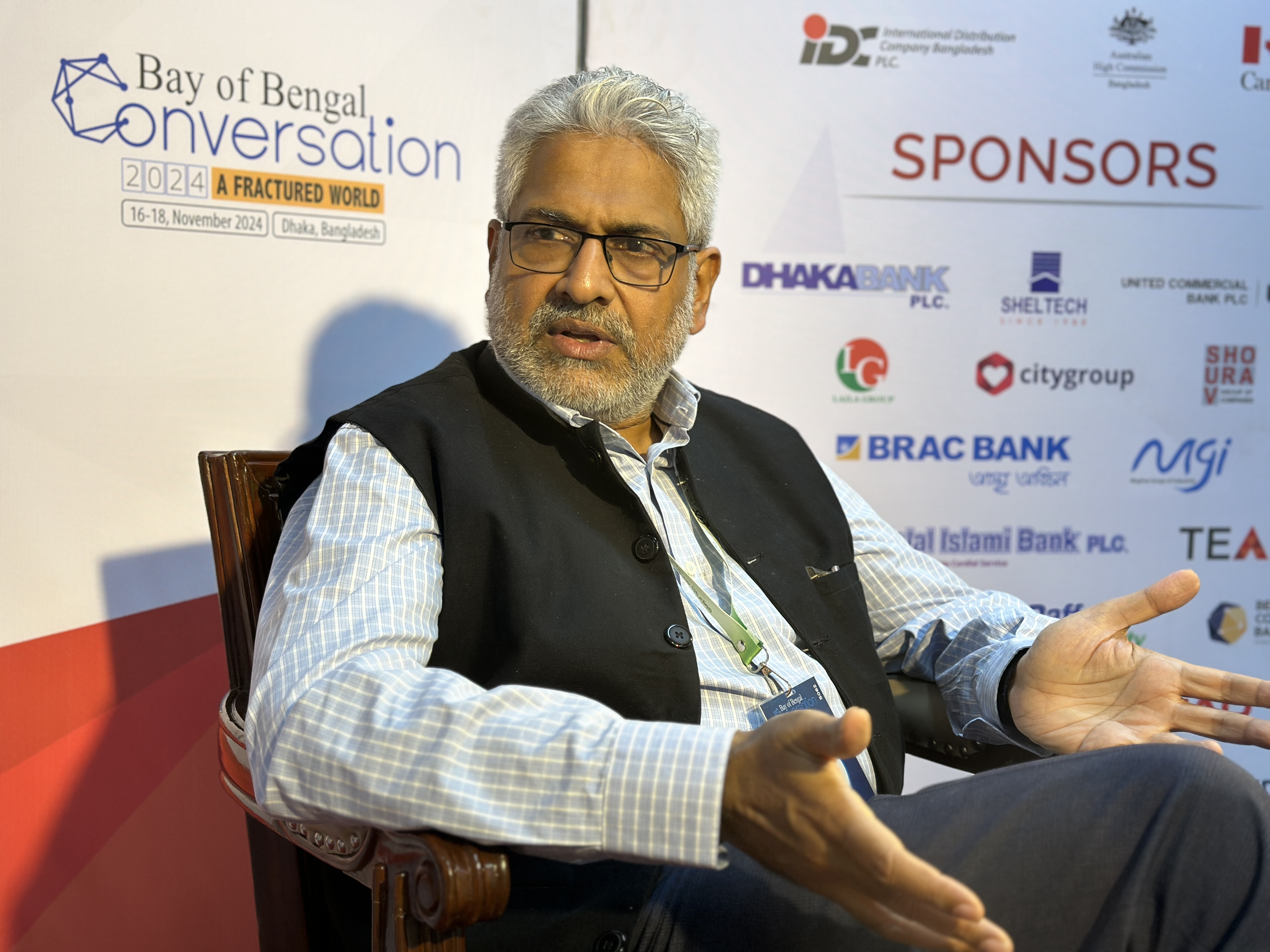
There have been inspiring examples of unity, with student leaders, some BNP activists, and even Jamaat members stepping up to protect minorities. Even the Indian foreign minister acknowledged in Parliament that ordinary people in Bangladesh have protected Hindus.
The reality is far more nuanced than what some Indian media reports or statements, like Donald Trump’s tweet, suggest. The idea of ongoing, widespread violence is not accurate. However, fear and insecurity do exist, and these need to be addressed promptly and at the highest levels. The chief advisor and other members of the interim government must take proactive measures to reassure all communities.
The more effectively they do this, the harder it will be for external forces—whether in India or the US—to use this issue to delegitimize the efforts and aspirations of the Bangladeshi people. Addressing these concerns head-on is essential to maintaining the integrity of the movement and ensuring it isn’t misrepresented or exploited.
FM: As you mentioned Bangladesh’s approach, I was wondering what India’s stance might be moving forward. What do you think New Delhi’s approach towards Bangladesh will look like, given the current scenario? It seems unlikely that Hasina or the Awami League will return to power in the foreseeable future, and India has long been accustomed to dealing with the Awami League in government. Do you think India will adapt its approach if the BNP or other parties come to power?
SV: Historically, when the BNP was in power around 2000–2001 and Atal Bihari Vajpayee was the Prime Minister of India, relations between New Delhi and Dhaka were quite positive. Even after incidents like Boraibari, the two countries managed to move past them and maintain good ties.
While India has been deeply invested in Sheikh Hasina and the Awami League, I don’t think anyone in New Delhi or within the Indian establishment seriously believes that history can be reversed to bring Hasina or the Awami League back to power in their current form. It’s clear that Bangladesh has turned a corner and is moving forward.
At this stage, it seems the Indian government is taking a “wait-and-watch” approach to see how the situation unfolds. It’s worth noting that Hasina is currently staying in India, and while this might not be officially acknowledged, it’s a fact. Reports suggest she remains in touch with people in Bangladesh and may even be issuing instructions to Awami League members.
It would be prudent for India to ensure that, while offering her asylum, she refrains from interfering in Bangladeshi politics from Indian soil. This is a reasonable expectation for the interim government in Bangladesh to have, and it could help the country move forward without undue external interference.
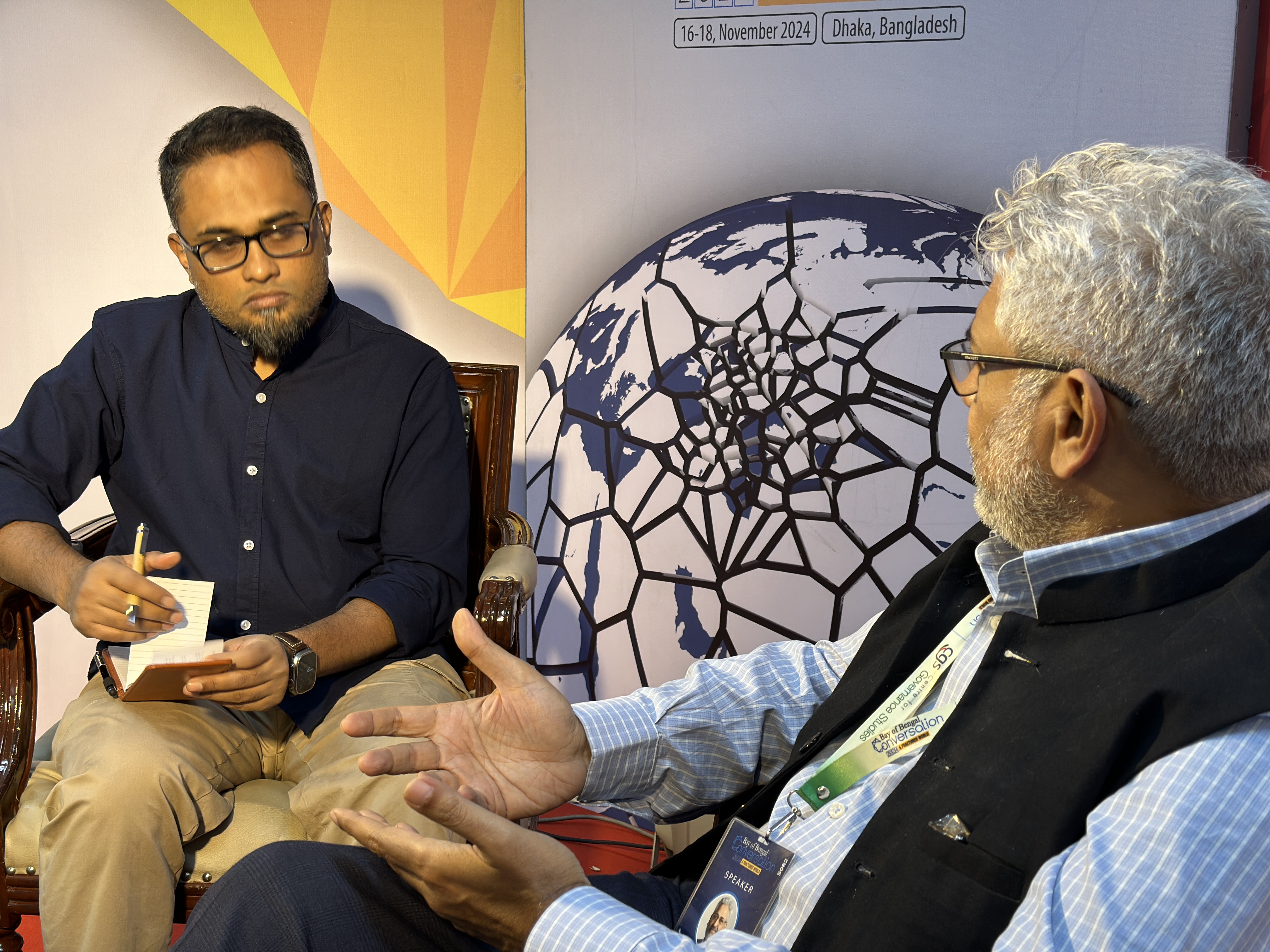
One of the complex issues emerging is how electoral politics in Bangladesh will proceed. Figures like Dr. Muhammad Yunus has labeled the Awami League a fascist party and suggested they should not participate in politics unless they repent and rebuild with new leadership.
On the other hand, the BNP appears open to having a functioning political opposition. For Bangladesh’s democracy to thrive, it’s crucial for a reformed Awami League or new political parties to emerge, ensuring a competitive electoral landscape.
It wouldn’t serve India’s interests to see a scenario where the BNP and Jamaat become the dominant political forces, with the BNP as the ruling party and Jamaat as the primary opposition. A balanced and pluralistic political field in Bangladesh is essential, not only for its internal stability but also for maintaining strong and cooperative relations with India.
I don’t think it would benefit the BNP to have Jamaat as the primary opposition party. The sooner politics in Bangladesh normalizes, the better. India likely recognizes the importance of this normalization as well.
The interim government and the various commissions it has established are working to create a framework that insulates constitutional governance from the abuses of the past. After all, if the BNP were to inherit an unreformed system, there’s a risk they might repeat the same patterns of governance that Sheikh Hasina’s regime was criticized for.
The essence of the revolution is to prevent a recurrence of such politics. While a complete overhaul of the Bangladeshi state may not be on the agenda—and it clearly isn’t—there is an opportunity to implement provisions that safeguard key democratic principles.
These include ensuring press freedom under all circumstances, establishing an independent public broadcaster, guaranteeing the independence of the Election Commission and judiciary, and professionalizing the police and security forces.
If such robust checks and balances can be introduced before elections, it wouldn’t matter as much who wins, as the system itself would prevent abuses of power. This seems to be the direction the interim government is aiming for. However, time is not on their side—they have only about a year and a half to make meaningful progress.
FM: Speaking of elections, many argue that Bangladesh’s political homogeneity poses a challenge. In India, large-scale manipulation or vote rigging is much harder due to the federal structure. For instance, even if the BJP wanted to manipulate elections in a state like West Bengal, it would be difficult because the Trinamool Congress is very strong there. Similarly, in South India, regional parties play a significant role in balancing power.
In contrast, Bangladesh’s centralized governance structure allows for greater control from the center, which makes it more susceptible to issues like vote rigging. Do you think this structural homogeneity contributes to Bangladesh’s challenges with electoral manipulation?
SV: This issue is a secondary concern. The more fundamental problem is that the Election Commission is not independent. In India, despite its political diversity, which offers some safeguards to the system, the real challenge is that the Election Commission has become partisan, which has raised doubts about the credibility of the electoral process. The opposition is unhappy with the Commission's performance.
The issue isn't just about vote rigging; it's about having an Election Commission that upholds the law. For example, under Indian law, campaigning on the basis of religion or communalism is prohibited, yet during the last election, the Prime Minister gave over a hundred speeches attacking Muslims, and the Election Commission took no action.
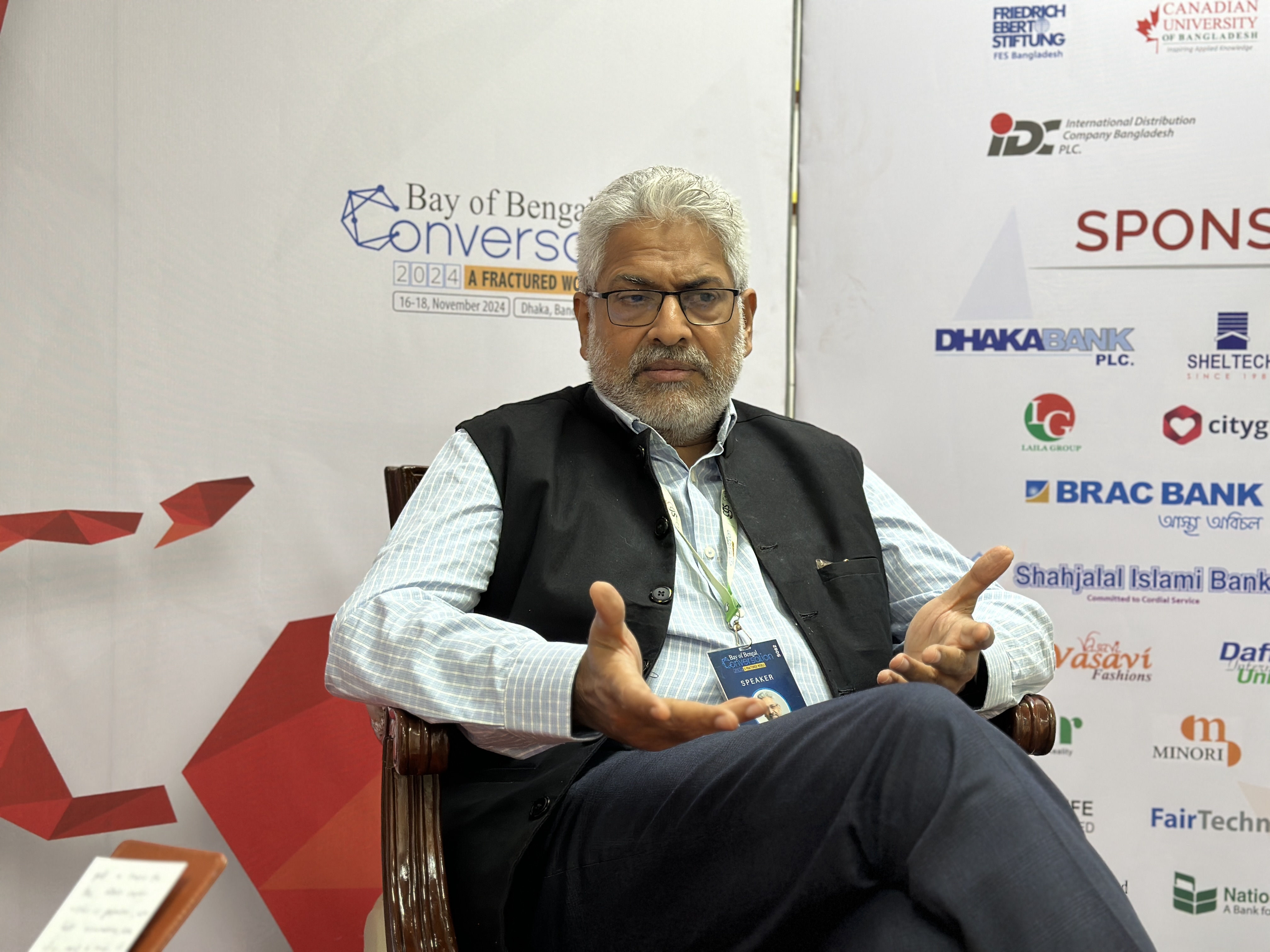
Similarly, in the upcoming elections in Maharashtra and Jharkhand, senior BJP leaders are attempting to polarize the electorate along religious lines, which is also illegal, yet the Election Commission remains silent.
The fundamental issue democracy faces is ensuring the independence of the "umpire" — the Election Commission. India has failed in this regard, and Bangladesh faces a similar challenge. The question you raise about whether Bangladesh’s unitary system makes it more vulnerable to rigging is valid, but the core problem remains the same: there should be an Election Commission that doesn’t allow rigging to occur in the first place. The real challenge is designing systems that ensure electoral integrity and prevent such manipulation.
FM: My second-to-last question is about India: Were you surprised by the outcome of the last elections in your country, particularly regarding Congress and its alliances?
SV: I wasn’t surprised. In fact, we expected the BJP to perform even worse. Reports from the ground clearly indicated widespread public dissatisfaction and frustration with Prime Minister Modi’s rule.
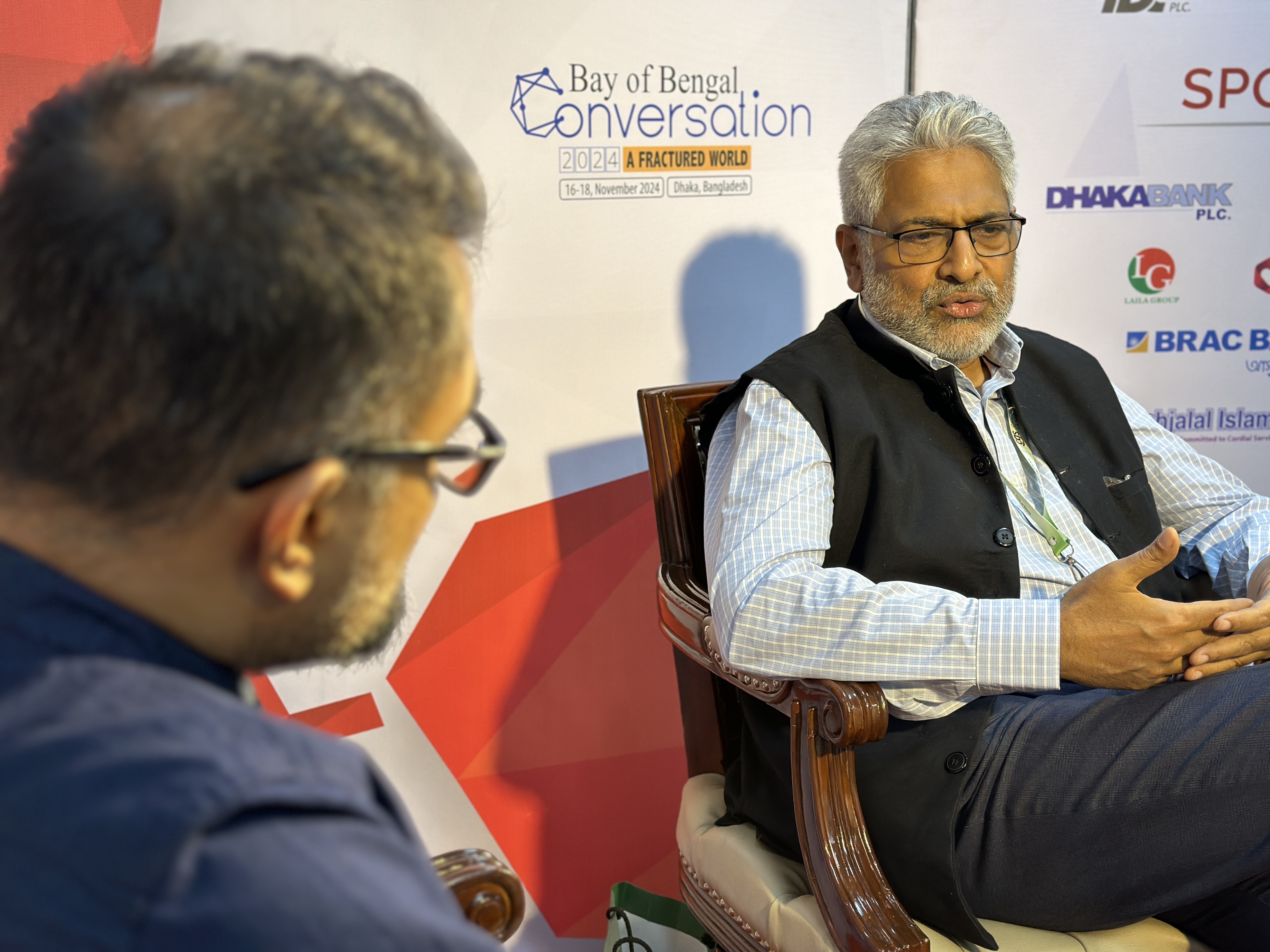
It was evident that his popularity had declined, as had the BJP's, particularly in states like Uttar Pradesh. However, I think many reporters found it hard to believe what they were witnessing, and as a result, many were hesitant to fully report what they encountered.
FM: What were the main factors behind Modi's electoral outcome?
SV: There is massive unemployment and significant economic uncertainty, with young people facing limited opportunities. There's a stark contrast between the narrative promoted by Modi and the reality on the ground.
Over the past decade, Modi has dominated television, newspapers, and is very skilled at using social media and other forms of propaganda. However, when there's such a wide gap between what is being said by the media and the actual conditions people are facing, it’s bound to backfire.
I think there was a lot of frustration. Had the opposition united six months earlier and addressed the smaller issues that led to vote division in states like West Bengal, Bihar, and Punjab, perhaps the BJP's results would have been even worse. So, the outcome didn’t surprise me.
It’s clear that people are fed up with a Prime Minister who had the power to improve lives but wasted it, using his authority to create division and conflict rather than addressing the country's real issues. I believe people voted with that in mind.
FM: My last question: As the founder of an independent media outlet, how difficult is it to operate such a platform in a country like India, and what are the main challenges you face? Additionally, if someone were to start their own independent media organization, what would be the key obstacles they would need to overcome?
SV: The Wire is one of several independent media platforms, but we are perhaps the only major nonprofit outlet. While platforms like Alt News, a key fact-checking website, are also nonprofit, there are only a few of us in this category, with most other media being regular for-profit companies.
I believe being a nonprofit has given us a certain strength and credibility in the eyes of our audience. It has allowed us to create a model where we are not financially reliant on anyone other than our own readers. Ultimately, the success of The Wire, and other independent media, depends on the willingness of readers to support it.
In Bangladesh, I’ve heard from friends that there isn't much of an appetite for people to pay for media, which presents a challenge. The only alternative to reader support is philanthropy, but philanthropy must remain at arm’s length.
Donors should not interfere with editorial independence or feel entitled to influence coverage. Genuine, disinterested philanthropy is key, and I hope such philanthropists exist in Bangladesh.
That said, we should not be discouraged because digital technology has made low-cost, scalable journalism more feasible. You don't need significant investment today to run an independent media outlet.
What’s essential is a critical mass of committed individuals who have credibility, the willingness to work hard, and the ability to raise enough funds to ensure survival and gather news. The kind of investment independent media required 10 or 20 years ago is no longer necessary.
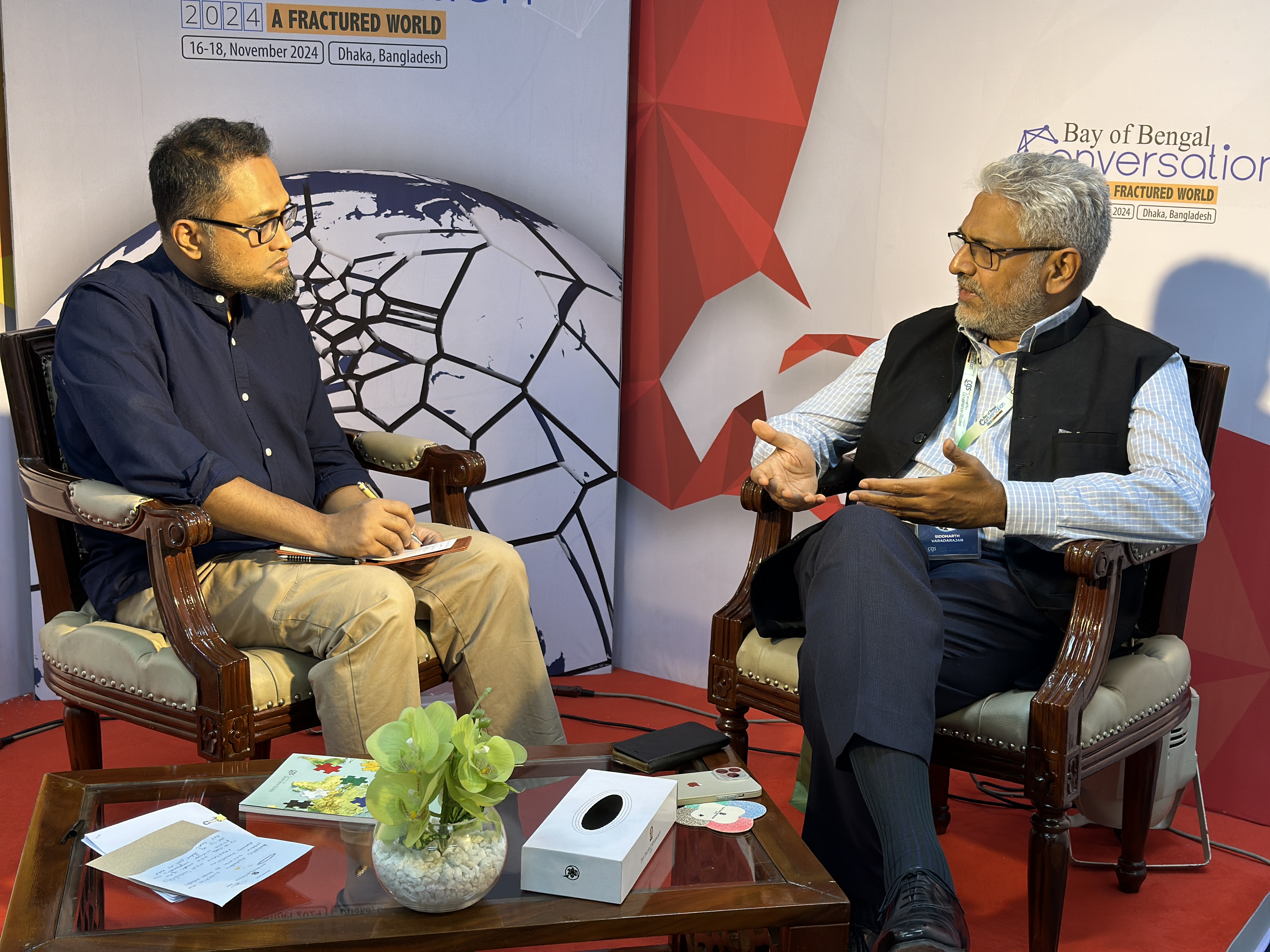
In India, for instance, there’s a large ecosystem of freelance reporters. In every state, dozens of reporters work in various languages, producing excellent stories for different platforms. While the financial returns may not be substantial, they manage to get by.
India is fortunate to have such a vibrant, independent media ecosystem, with freelance reporters and platforms that, despite the decline of mainstream media standards, continue to provide the public with a strong alternative. I believe this could be true for Bangladesh as well.
FM: Thank you for your time.
—-

